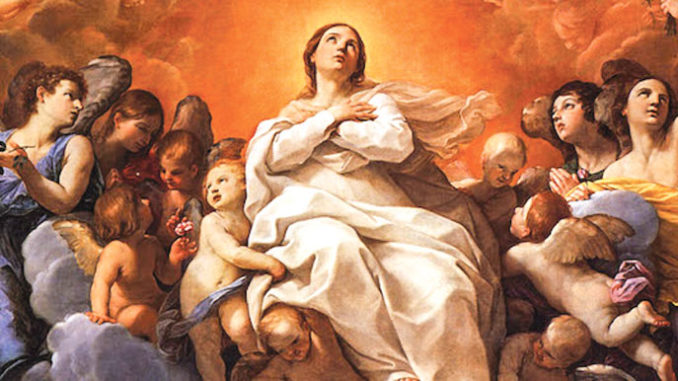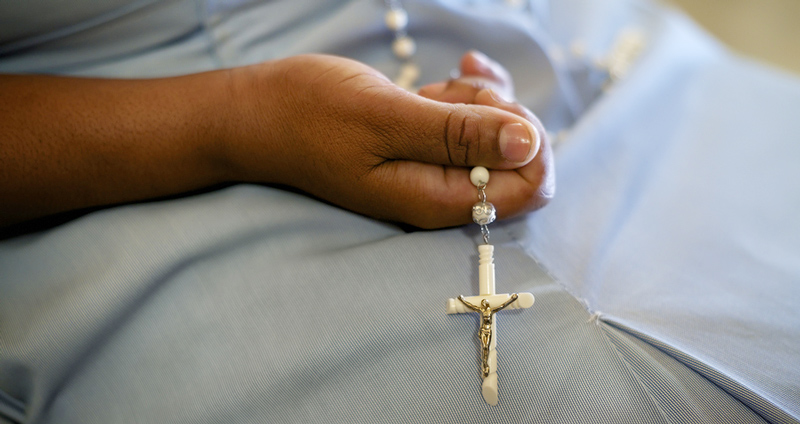
We’ve been through toils and snares and are going through them still. Anyone who reads The Catholic Miscellany needs no accounting for why I say this. As addled a pursuit as it may be, I am one of those who asks the aggravating “why” questions when those toils and snares come to weary and maim us.
Something that happened on the Feast of the Assumption made me realize that the what questions are more productive than the why’s.
I was in Southern Pines, North Carolina, on a two-week grant. It was the fourth consecutive summer that I’ve been privileged to stay at the Weymouth Center for the Arts in its old Boyd mansion. Writers and artists come there for a week or two of self-directed projects. Mine have been Biblical meditations, poetry, and histories. Most of the residents squirrel away for 10 hours a day, breaking only for short walks and grabbing fruit, yogurt, soup, and coffee. There’s not a television on the premises.
St. Anthony of Padua Church is three blocks downhill, and it’s a congenial faith community, settled along Amtrak and CSX tracks, which punctuate organ music with train whistles. The downtown is quaint and artsy.
It’s a good place for focus, focus, focus. The day of Aug. 15 was like some others I’ve had over the years. It was a day of glum, stunned staring.
The celebrant of the noon Mass was a retired priest whose name I never learned. He talked about the Blessed Mother and her art of listening. He hammered away at the truth that we can listen to God through the Word and in our hearts but also via the data of our everyday lives. He asserted that every life event can carry with it moments of grace. Illness and childbirth, tragedy and triumph, crisis or championship, terror or delight — all of it, he urged, can be full of grace. He cited the trials and the glories of Mary as he quoted Frederick Buechner’s maxims on grace. I’ve never read Buechner but now plan to.
After Mass I kept remembering the end of Georges Bernanos’s “The Diary of a Country Priest”. We read it for Catholic Book Club at St. Gregory’s a few years ago. The 30-year-old, rail thin title priest, who seems no better than a bedraggled failure, is dying of a too-lately diagnosed stomach cancer. He realizes that he has done a little good and shown some mercy. His last words are “Grace is everywhere.”
Despite inner turmoil, I then noticed that the town’s bakery-deli still made superb Reubens, that tourists on the street still smiled, and that people still greeted strangers and even held doors at the entry to church, the post office, and local eateries. The sun was shining, and the Weymouth gardens still dazzled.
The best thing that the Blessed Mother reminded me of is the message of passion, death, and resurrection. Injustice, contempt, or any evil never has the last word. That’s the answer to the what question — or what now — question: Grace rises everywhere.




